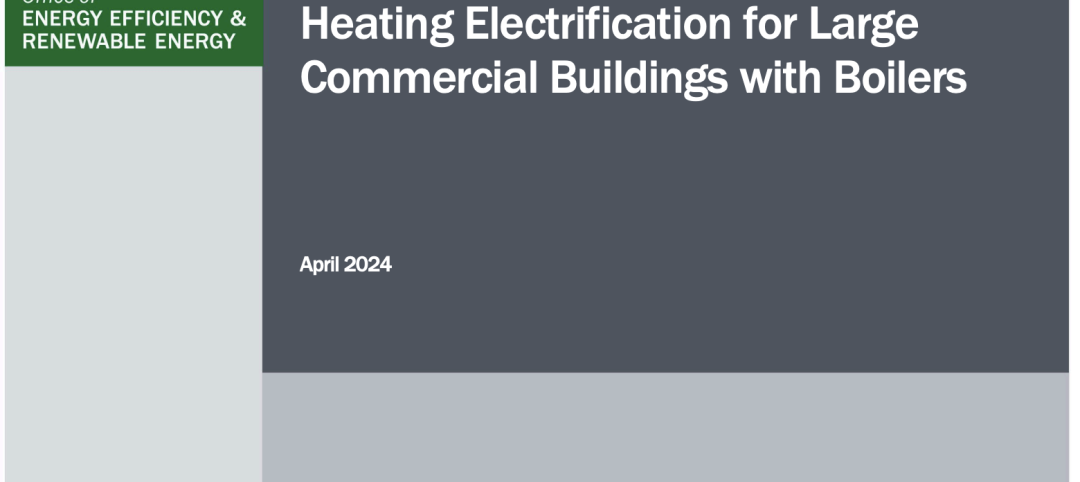The way the federal government analyzes intense rain events isn’t keeping up with the reality of climate change, and that has serious implications for infrastructure projects and the availability of, and rising cost of, flood insurance.
Severe rainstorms, sometimes described as “atmospheric rivers” or “torrential thunderstorms,” are making the concept of a “1-in-100-year flood event” obsolete, according to a report from First Street Foundation, an organization focused on weather risk research.
These events are occurring more frequently due to the impact of climate change, but federal rainfall analysis, managed by the National Oceanic and Atmospheric Administration, isn’t keeping up with the new weather conditions, First Street says.
Half the people in the U.S. live in a county where a 1-in-100-year flood is at least twice as likely now as it had been in the past, coming once every 50 years instead of every 100 years. In some areas, a so-called “1-in-100-year” rainfall could now happen far more frequently—as often as every 5 to 10 years.
The outdated analysis has serious implications for the way infrastructure projects are initiated and designed. And, because FEMA’s federal flood insurance program greatly underrepresents the number of people that could fall into FEMA’s Special Flood Hazard Areas, millions of Americans may be unaware of their current flood risk.
Inaccurate flood risk data due to underestimating the impact of rainfall also impacts the cost and availability of flood insurance—this is especially true for property that isn’t close to the ocean or inland bodies of water.
The government is working to remedy the situation, though. NOAA, as reported by CNN, says it is working on a revamped approach to its rainfall analysis that is expected to be completed in 2027.
Related Stories
HVAC | May 28, 2024
Department of Energy unveils resources for deploying heat pumps in commercial buildings
To accelerate adoption of heat pump technology in commercial buildings, the U.S. Department of Energy is offering resources and guidance for stakeholders. DOE aims to help commercial building owners and operators reduce greenhouse gas emissions and operating costs by increasing the adoption of existing and emerging heat pump technologies.
MFPRO+ News | May 24, 2024
Austin, Texas, outlaws windowless bedrooms
Austin, Texas will no longer allow developers to build windowless bedrooms. For at least two decades, the city had permitted developers to build thousands of windowless bedrooms.
Resiliency | May 24, 2024
As temperatures underground rise, so do risks to commercial buildings
Heat created by underground structures is increasing the risk of damage to buildings, recent studies have found. Basements, train tunnels, sewers, and other underground systems are making the ground around them warmer, which causes soil, sand, clay and silt to shift, settle, contract, and expand.
MFPRO+ News | May 21, 2024
Massachusetts governor launches advocacy group to push for more housing
Massachusetts’ Gov. Maura Healey and Lt. Gov. Kim Driscoll have taken the unusual step of setting up a nonprofit to advocate for pro-housing efforts at the local level. One Commonwealth Inc., will work to provide political and financial support for local housing initiatives, a key pillar of the governor’s agenda.
Building Tech | May 21, 2024
In a world first, load-bearing concrete walls built with a 3D printer
A Germany-based construction engineering company says it has constructed the world’s first load-bearing concrete walls built with a 3D printer. Züblin built a new warehouse from a single 3D print for Strabag Baumaschinentechnik International in Stuttgart, Germany using a Putzmeister 3D printer.
MFPRO+ News | May 20, 2024
Florida condo market roiled by structural safety standards law
A Florida law enacted after the Surfside condo tower collapse is causing turmoil in the condominium market. The law, which requires buildings to meet certain structural safety standards, is forcing condo associations to assess hefty fees to make repairs on older properties. In some cases, the cost per unit runs into six figures.
Codes and Standards | May 10, 2024
California law that ended single-family zoning is struck down by court
A law ending single-family-home-only zoning in California was ruled unconstitutional by a Los Angeles County Superior Court judge. The decision could lead to the law being invalidated in the state’s largest cities.
Sustainability | May 10, 2024
Perkins&Will’s first ESG report discloses operational performance data across key metrics
Perkins&Will recently released its first ESG report that discloses the firm’s operational performance data across key metrics and assesses its strengths and opportunities.
Codes and Standards | May 10, 2024
Guide on electrifying space heating for large commercial buildings with boilers released
The U.S. Department of Energy has released a guide on electrifying space heating for large commercial buildings with boilers. The guide summarizes key considerations for people seeking to retrofit existing large commercial and multifamily buildings, particularly those that currently heat spaces using fossil fuel-fired boilers.
MFPRO+ News | May 10, 2024
HUD strengthens flood protection rules for new and rebuilt residential buildings
The U.S. Department of Housing and Urban Development (HUD) issued more stringent flood protection requirements for new and rebuilt homes that are developed with, or financed with, federal funds. The rule strengthens standards by increasing elevations and flood-proofing requirements of new properties in areas at risk of flooding.

















